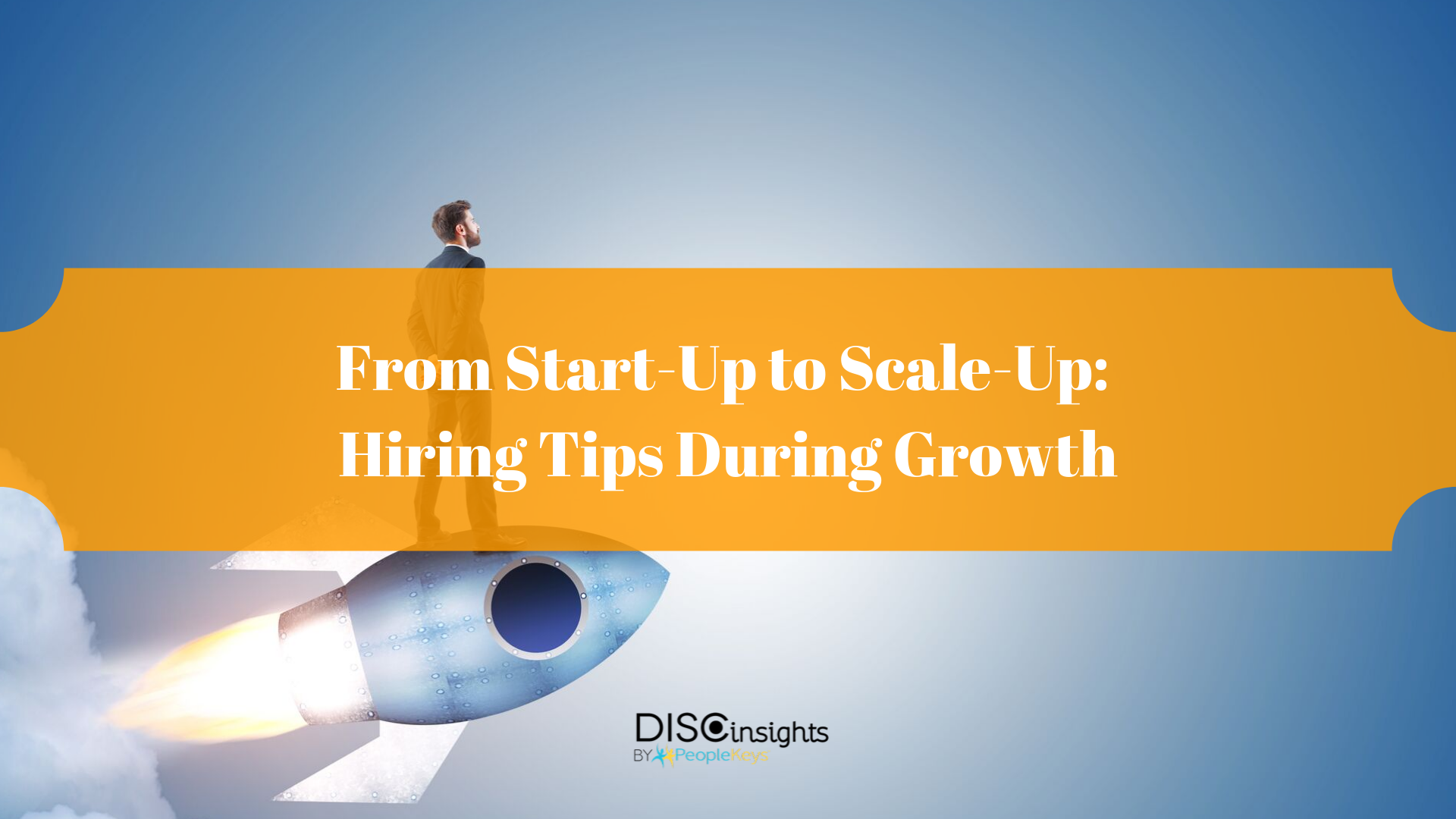- SHOP BY PRODUCT
- DISC TRAINING & CERTIFICATION TOOLS
- DISC RESOURCES
- BLOG
- SHOP BY PRODUCT
- DISC TRAINING & CERTIFICATION TOOLS
- DISC RESOURCES
- BLOG
- ALL ITEMS



Every business starts somewhere. According to Foundr magazine, the average number of founding team members is 2.09. So, let’s say, 2-3 people. That’s where a start-up begins. At that point, there is so much being created, tested, reiterated, and discovered. There is no operating manual. The pace is quick, the energy is high, and days are long. In my experience, certain personality styles are drawn to this stage naturally. As the company figures out its direction and begins to grow into a scale-up situation, other personality types are needed to take the company to the next level. In either stage, one can flex their style, so let’s look at the growth phases through the lens of DISC theory and TEAMS thinking style.
 DISC Styles During Start-Up
DISC Styles During Start-UpThe founding teams I have known have been made up of primarily “Dominant” (D) and “Influencer” (I) styles. The chances are they were higher in both styles. In many founding teams, the “D” style tends to be the technologist while the “I” style is the one scrambling to find a customer for their solution. Both have to be ok with ambiguity and change, so they were most likely not primarily “Steady” (S) styles. Rapid product iterations were focused more on speed than accuracy, so the “Compliant” (C) style, which has a need for accuracy, most likely did not play a role either. The founders are “jacks-of-all-trades,” taking on all roles required to keep the start-up going. If they were to get bogged down in too much detail or become paralyzed about a decision (and this happens), then momentum slows, customers are lost, and enthusiasm fades.
Likewise, certain thinking styles show up in the start-up phase more than others. The three that I’ve seen are the Theorist, Analyzer, and Strategist. Just like the DISC style, one person may be strong in more than one style. The Theorist is critical, as this is the person with the ideas. They have a vision that brings the founders together. The Analyzer is focused on quick refinement of the product, although they can get too wrapped up in the desire for accuracy. Finally, the Strategist overcomes obstacles, simplifies ideas, and creates the path forward.
Now let’s look at the point when the business becomes a scale-up. Notice that there are no real hiring tips for a start-up. They are simply built in garages, kitchens, and labs. Understanding the typical start-up DISC and thinking styles will help reach and exceed the next level.
As the business takes off, more people are needed to keep up. The founders have discovered the formula that works, and the pace of change slows down as the push for sales grows. Delivering a high-quality product, consistently, becomes more of the focus. At this stage, DISC styles of “S” and “C” are important to target for hiring in key operational roles. The founders with "D" and "I" main styles may be able to flex their personality; however, the more paced “S” and “C” personality styles serve better during scale-up. The “I” founders I have known went on to lead the sales team and, in some cases, became the CEO. The “D” founders continue developing the product and can also become the CEO. If you are coaching the founders at scale-up, it’s important to help them understand the dynamics in place and the styles needed to best grow the company consistently.
While the Theorist, Analyzer, and Strategist continue to be important (the founders as CEO/President carry these forward), the Executor and Manager play a large role in managing growth. The Executor creates standard processes and ensures they are followed. This provides the consistency and quality of operations. The Manager thinking style balances the needs of the individual with those of the team. Their diplomacy keeps things working smoothly. In reality, we each have a blend of styles, so knowing those of the founders will help build the team for the future either through hiring or flexing.
No matter your level of business establishment or development, use PeopleKeys’ behavioral solutions as a helpful tool to choose your partners, plan your strategy and attract team members wisely. Hiring a business-minded behavioral consultant can be the first step in the right direction, to assess the current state of your organization and develop a clear, strategic plan to where you want to be. Contact us for executive training.

© PeopleKeys. All Rights Reserved
WORKING DAYS/HOURS
Mon - Fri / 8:30AM - 5:00PM EST
